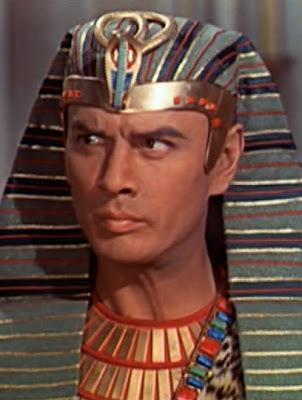This was Pharaoh's response to the plague of locusts that had eaten up all of the greenery in the land. It was the 8th plague, yet Pharaoh casually discounted his track record of inconstancy and stubbornness by saying he needed to be forgiven "just this once." He asked for the external plague to be removed, but desired no inner transformation. Although he appeared to humble himself, he clearly didn't see himself as a sinner in need of continual forgiveness, or a man of deeply flawed character who had offended the One holy God by his thoughts, words and deeds. He supposed there could be a quick fix for his "little" problem. He viewed the death of the vegetation in his land - the outward issue - as a huge matter, but he saw his own sin - the heart issue - as a small one.
The true conversion of lost sinners, and any genuine repentance in saved ones, is characterized by a deep awareness of personal sinfulness - of having offended God and become worthy of His just displeasure, judgment and wrath. It is more than a consciousness of having sinned. More than an acknowledgement of mistakes. More than just admitting to a bad habit. Accepting full responsibility for and ownership of one's SIN, as an ingrained character trait and a chosen lifestyle, is essential. We must acknowledge our SIN, as a poison that courses through the whole system of our soul. We must confess our SIN, as a terrifying slavery of the mind and conscience that cannot be escaped in any natural way. We must recognize our SIN, as that which requires a supernatural intervention - an intervention without which our sin would most assuredly lead to a destruction worse than physical death.
Before grace can do its miraculous and restoring work, the ground must be prepared by conviction. The fallow ground that has not been broken by a firm knowledge of personal total depravity will not grow the seeds of grace that are sown in it. Pharaoh had little room for grace because he had very little conviction of sin.
The person who knows he is a sinner can be blessed with forgiveness and sanctification in Christ. But the person who doesn't know he is a sinner has no "need" for the work of Christ. Therefore, struggling saint, let your neediness confirm your assurance!


That's a good word right there.
ReplyDelete